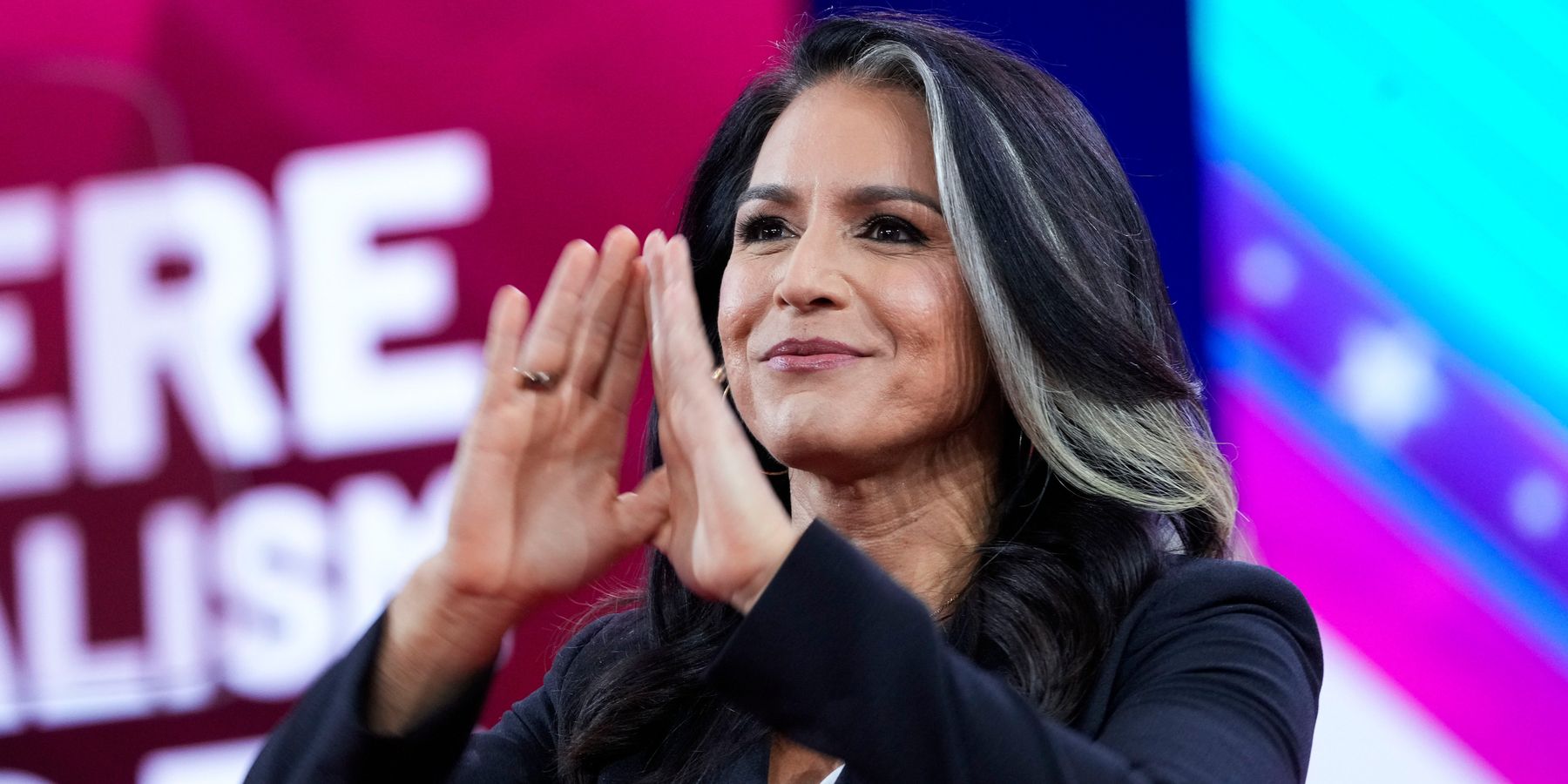The Senate just confirmed Tulsi Gabbard as President Trump’s Director of National Intelligence (DNI), with the Senate giving President Trump and Tulsi this important victory despite her tumultuous nomination fight.
The final vote was 52-48 mostly along party lines, with exactly one Republican — Sen. Mitch McConnell — voting in opposition.
This morning's confirmation came after 30 hours of post-cloture debate, but in the end, she prevailed, ending months of criticism, including attacks from people like Rep. Debbie Wasserman Schultz (D-FL), who said she was “likely a Russian asset” and former Secretary of State Hillary Clinton claiming that “she’s the favorite of the Russians.”
After some speculation that key Republicans would break against her, it turned out they provided the unity Gabbard needed to prevail — and it was not necessary, as with DoD Secretary Pete Hesgeth’s vote, to bring Vice President J.D. Vance in for the tie-breaker.
“As she brings independent thinking and necessary oversight to her new role, I am counting on her to ensure the safety and civil liberties of American citizens remain rigorously protected,” said Representative Lisa Murkowski (R-Alaska), once thought of as wobbly, ahead of Gabbard’s nomination.
Sen. Susan Collins (R-Maine) also threw her support behind Gabbard. She was one of the three GOP Senators who voted against Hegseth’s confirmation (along with Murkowski and McConnell (R - Ky). She had previously complained that there were “a lot of obvious issues” with Gabbard’s nomination, including Gabbard’s past statements against section 702 of the Foreign Intelligence Surveillance Act (FISA). The law allows the federal government to collect intelligence information from non-Americans without warrant, but the ACLU and other organizations have scrutinized it for its potential to capture Americans’ communications, violating the 4th amendment.
Additionally, some were concerned about Gabbard’s previous support for whistleblower Edward Snowden. She previously sponsored a resolution calling for Snowden’s charges to be dropped and, on Joe Rogan’s podcast, commented that “if it wasn’t for Snowden, the American people would never have learned the NSA was collecting phone records and spying on Americans.”
Notably, during her Senate hearings, Tulsi would not call Snowden a traitor when prompted. However, she said that his actions "harmed our national security" and "revealed illegal and unconstitutional government programs that conducted mass surveillance of millions of Americans' data." She conceded that Snowden should have brought his concerns to the proper channels rather than leaking his findings to the media.
Most Republicans had vocalized support for Gabbard all along. Senator Rand Paul (R - Ky) was outspoken in his endorsement, “It’s time to put the intelligence community on notice: Reform is not just necessary — it’s here. I proudly support Tulsi Gabbard.”
- Why the intel community needs Tulsi (but is too blind to know it) ›
- Sen.Cotton on Tulsi: Don't 'impugn her patriotism or integrity' ›
- Tulsi Gabbard vs. the War Party ›
















